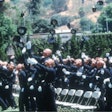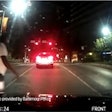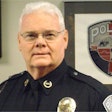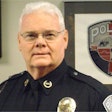 Photo courtesy of 401 (K) 2012/Flickr.
Photo courtesy of 401 (K) 2012/Flickr.
The vogue term in headlines now is "distressed cities," which means hang on to your hats, here it comes. All of emergency services are told to "do more with less." This motif from the elected dais is the new way of business and the command staff's marching orders. It's hard to say when this will cease, and we return to normalcy.
Elected officials seeking reforms seem to lack the respect for the men and women of emergency services. As one said recently to me, "There is no difference between a police officer and ditch digger, you are all my servants." This set me back in trying to find some reasoning in his off-handed statement. We're both citizens and taxpayers but the ditch digger, as he so fondly referred to a public works employee, does not run toward the trouble. They also call 911.
This depersonalization of first responders makes it easier to treat them with disdain. Callused public statements will garner support with the tax-paying public. Our counterpoint is the reeducate the public about the services we provide them.
One thing that allows this depersonalizing environment to take hold is an old statement from the community policing days. The average citizen has three-plus contacts with police in their lifetime. One is usually a traffic citation; the second will be their involvement in a motor vehicle accident; and the third comes when they are the victim of a crime.
None of these encounters are pleasant, and if the citizen could obtain their pound of flesh from the evil copper who gave them a speeding ticket, then so be it. These elected cop-berating officials now feed into a mindset wanting cop-payback time. Just as it was in the late 1980s, we need to win the public's hearts and minds all over again.
Most of professional administrators use various methodologies to determine departmental effectiveness in addressing criminality. Many chiefs use the CompStat method in some format. Elected leaders then question police leaders about the trends. While trying to extol the successes of my agency, I was asked why I wasted all that money solving crimes. When I asked what that meant, I was told that most crimes in this elected official's view were not important to him or his dais. He said just take the report; if they have insurance then it's taken care of.
I retorted that this validates criminal behavior and gives petty criminals the green light to go free-ranging with their crime sprees. Still, if it's not him (or someone important to him such as family or a political supporter) then all go free.
I'm observing "bargain basement policing" in some areas where a report is taken (for insurance purposes and tax write-offs) with no follow-up. Unless it's a violent crime, it doesn't get a second blush. The real victims will be the citizens who applaud this now. As the pendulum swings off its hinge, their safety and insurance rates will also become unhinged.
Community policing and other forms of outreach will be another passing fancy without philanthropic assistance or the support of a community foundation. Community policing is labor, time, and investment intensive. If you still want safety programs and citizen police academies, offer them online. Forget the personal touch.
It's imperative that all of us, from the youngest street copper to the crusty old chiefs, need to reeducate the public. As I have always said, "If you don't blow your own horn, someone else will use it as a spittoon."
Give real answers and real service. Don't shortchange our customer base. They can defend us, when they're told that the officer who helped them was no different than some elected official's idea of a servant. We must seize every opportunity to regain trust and loyalty from our customers. They're also voters.


















